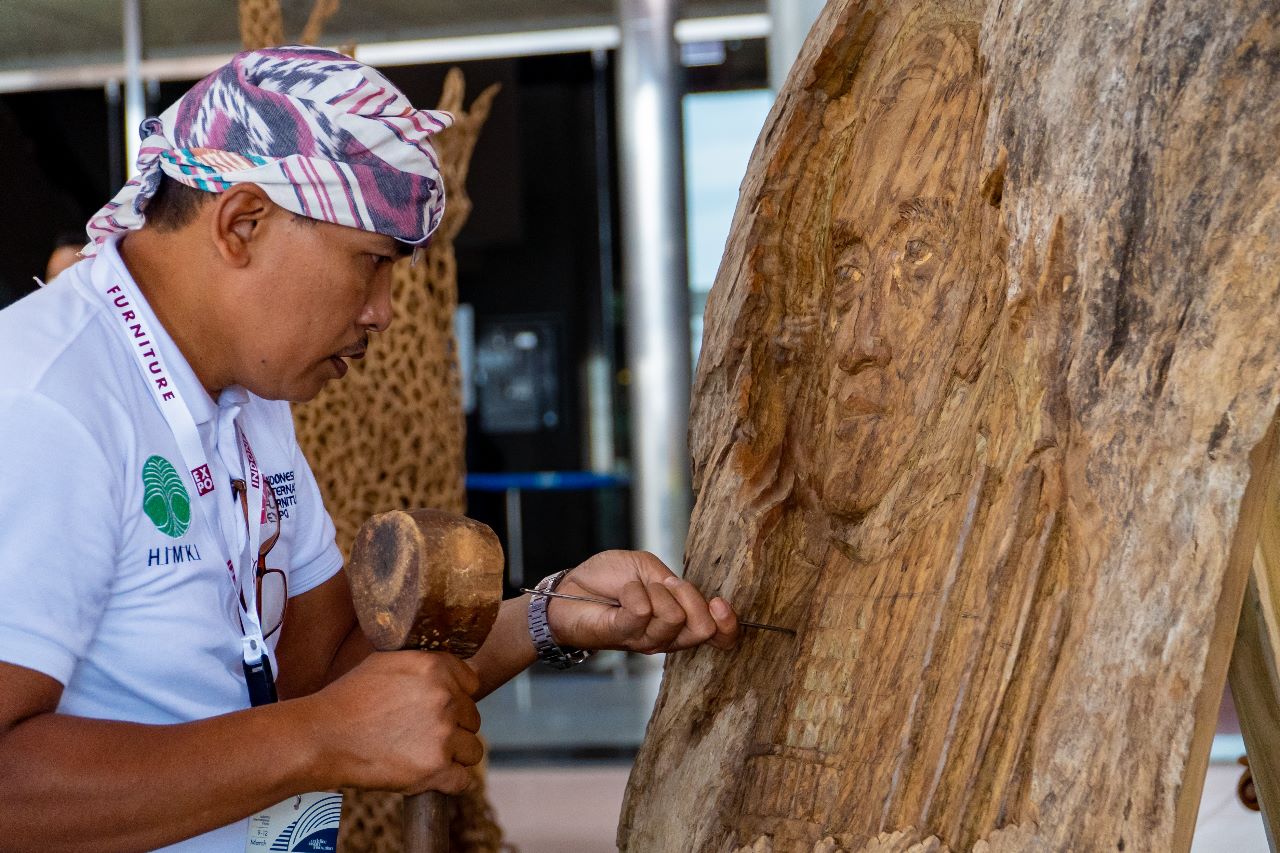
:
Oleh Siti Chodijah, Jumat, 10 Maret 2023 | 11:33 WIB - Redaktur: Siti Chodijah - 691
Jakarta, InfoPublik - The furniture industry is one of the labor-intensive industries bolstering Indonesia's export growth. Presently, the furniture industry can absorb a workforce of more than 143 000 people, and 1,114 businesses have joined the industry.
The furniture industry's GDP grew by 8.16 percent in 2021 and 0.21 percent in 2022, with an average utilization rate that tends to remain stable.
The most recent data for December 2022 indicate that the utilization of the furniture industry is 74.16%. The furniture industry has a market potential of roughly US$500 billion, while the projected market potential, according to the World Furniture Account Federation, is approximately US$700 billion with a 6%--10% growth rate.
The export performance of the Indonesian furniture industry has increased by 77.9% during the past five years. In 2021, the value of furniture exports reached $2.8 billion, a 33% increase over 2020. The wood and rattan furniture industry's exports were observed to remain consistent at $2.9 billion in 2022.
To achieve the government's target of a $5 billion increase in the furniture industry by 2024, it is required to take many strategic measures, such as increasing exports and import substitution. Also, it is anticipated that more furniture products would be sold on Indonesian e-commerce platforms.
"Strong competitors (in the Indonesian furniture business) include China and Vietnam. Avoid losing to them. The sky is the limit for this foreign exchange-earning industry, stated Coordinating Minister for the Economy Airlangga Hartarto during his speech at the Opening Ceremony of the Indonesia International Furniture Exhibition (IFEX) 2023 on March 9, 2023, in Jakarta.
The furniture industry also faces many challenges associated with the availability of raw materials, the innovation of product design, the creation of products in accordance with market preferences, the improvement of human resource skills, and the application of appropriate technology, particularly in relation to environmental sustainability.
"Raw material availability is a classic (problem) that must be handled, therefore MSMEs are needed. We will have another meeting with the Ministry of Environment and Forests. The Timber Legality Assurance System (SVLK) was requested by the European Union, particularly now based on the rules that apply in Europe for all forest-based products, whether palm oil, furniture, coffee, etc., they are all being traced, and they do not want these materials to originate from illegal forests. It has also been discussed with the President that SVLK is borne by the government, particularly for MSMEs, and that the Ministry of Environment and Forests is in charge of the budget. Minister Airlangga stated that SVLK may be (implemented), but don't burden the business players.
Minister Airlangga revealed that in addition to living, dining, and craft furniture, bed and sheet are another industrial products that can be brought into the country. This is due to the fact that it will help the nation's textile sector and the hotel business is beginning to recover, making the potential great.
"Of course, the government is pushing for a Comprehensive Economic Partnership Agreement (CEPA) that is due to be finalized this year, as well as the Indo-Pacific Economic Framework (IPEF), including with the United States," said the Coordinating Minister for Airlangga.
Photo: Ekon Public Relations
Reporter: Isma